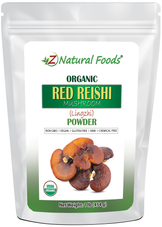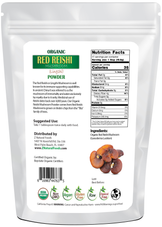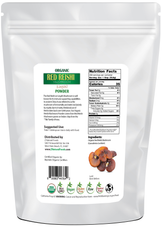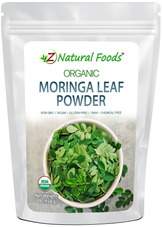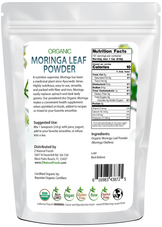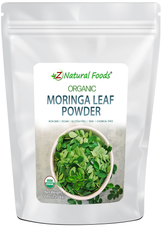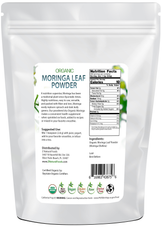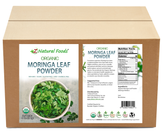Description
Description
As a master herbalist, one of the most valuable lessons I've learned is the importance of utilizing herbs in diverse forms and preparations.
Whether in capsules, powders, or teas, experimenting with various concentrations is an excellent way to truly understand and connect with the herbs you work with.
Learn what herb works best for you
I can assure you of one thing, you will never really know an herb until you use it for an extended period of time. This is by far the most effective way to learn how you as an individual respond to an herb’s medicinal or tonic properties. While most people can use most herbs with no issues, the form in which they are consumed for a specific individual can determine the level of results.
You can read hundreds of books and articles on this topic but you will never truly learn what works best for you until digging your heels in and using the herbs.
It is important to understand that we all have different constitutions and a preparation that works well for you may not work as well for me. Mind you, the herb will work for both of us yet it is up to the individual to figure out which preparation is best for their constitution. This can come down to the concentration or the materials used to make this preparation.
Is herb tea, extract, capsule, or powder best?
Recently, I was asked by a client why I suggested he use specific herbs in tea form versus a tincture, full spectrum extract, capsule or whole herb powder. My answer was based on our history working together. I had found that he didn’t like the aggressive manner in which the tincture or extract capsule brought on a powerful healing response.
Therefore I decided to have him use a concentrated tea. He would get the same nourishing benefits but just a slower onset of a healing response. Not long after beginning the program he called me to tell me how pleased he was and loved the way his body was responding. I could have chosen to just use less of the other preparations but I didn’t feel as if he would have gotten enough quantity in order to see results. Chances are, if I had used that same preparation as before, he may have built a mental block about them which would have lowered his chances of seeing results.
Adjust your potency levels with herbal teas
My decision was also based on the herbs I was having him use. Most of the herbs had a very high percentage of water soluble constituents, so a tea was perfect for this situation. Another reason I used teas is, he was able to have more control of the concentration levels based on the time he allowed it to cook and steep.
By being in control he can begin with a lighter tea and slowly work his way up in concentration. With a premade preparation, you have no choice on the concentration unless you want to buy multiple bottles of that herb that are at different concentrations. Sure, you can always water it down but in my opinion, that is a waste of good herb and money. While a tea preparation is not the most convenient, when prepared correctly, they are powerful medicines. As a matter of fact, tea’s are the oldest and most traditional way of using herbs throughout history. The capsule and tablet only came into play for purposes of convenience.
Contrary to popular opinion, powders can be made into a nourishing tea as well. Here are 2 great examples:
First, is whole red reishi mushroom. With reishi mushroom powder you will want to make a decoction which means you cook it at a low rolling boil for 20 min, allow it to cool and strain. Then simply allow to cool and enjoy.
Second is moringa. In this case, you will want to make an infusion because it is a leaf powder. If cooked at a boil, it will destroy some of the constituents and volatile oils. In this you simply pour the hot water over the powder (in whatever ratio and concentration you want) cover and let it sit for 10-15 minutes. Enjoy!
3 ways to determine your optimal herbal preparation
There are several factors that need to be taken into consideration when making a decision about what preparation is best for the individual.
First, is the imbalance you are dealing with. How mild or advanced it is can be of great importance to this decision. The more advanced the imbalance, the more that time is of the essence. Therefore a strong preparation would be most advisable. Whether that is a tea, tincture, concentration or powder (whole or extract), always use the preparation that over time has worked best for you. If you are new at this, then some experimenting may be necessary.
If you have concerns that the form you are using will not be strong enough, you need not worry. You can always take something weak and make it stronger by simply cooking or soaking for a longer period of time.
Second, is the phytochemical makeup of the herbs. In order to get the most out of what you are using, it is important to look at the solubility factor. A good materia medica will show you the percentage of water soluble constituents in herbs. This information is very valuable in helping to make the above decision. Knowing what medium will give you the best output from the herb is very important. Whether it is water, alcohol, vinegar, glycerine or fat, then this is what needs to be used to either prepare the herb or added to the end product in order to get the most from the herb.
For example, if you were to use curcumin extract as a tea it would be advisable that you add some fat like coconut or almond milk to help with the solubility which will serve as the delivery system for this extract.
Finally, understanding the role consistency plays in this game. I have used this powerful word in all of my articles, videos, and educational information. I can not impress upon you enough to understand the value of being consistent. This is very simple, the number one reason why we fail is a lack of consistency. Therefore no matter what you do consistency is going to be the number one key to your success.
About Michael Stuchiner, Master Herbalist
Michael Stuchiner is an experienced Master Herbalist, the Head of Education for Z Natural Foods, a and an accomplished author. With a 16-year specialization in medicinal herbs, Mike also has a vast knowledge in tonic and adaptogenic herbalism. Mike has enjoyed a 25-year career as an elite-level competitive powerlifter where he learned to heal his ‘mind and body’ as an avid user of herbal remedies.
As an “in-the-trenches” herbalist, Mike has done more than 85 speaking engagements, consulted with clients ranging from young to elderly, worked with athletes in virtually all sports and with clients who have “dis-ease” states of a wide variety. Mike also mentors student Master Herbalists and will continue to teach the next generation to grow a deeper wisdom of the human body through appropriate herbal remedies.



